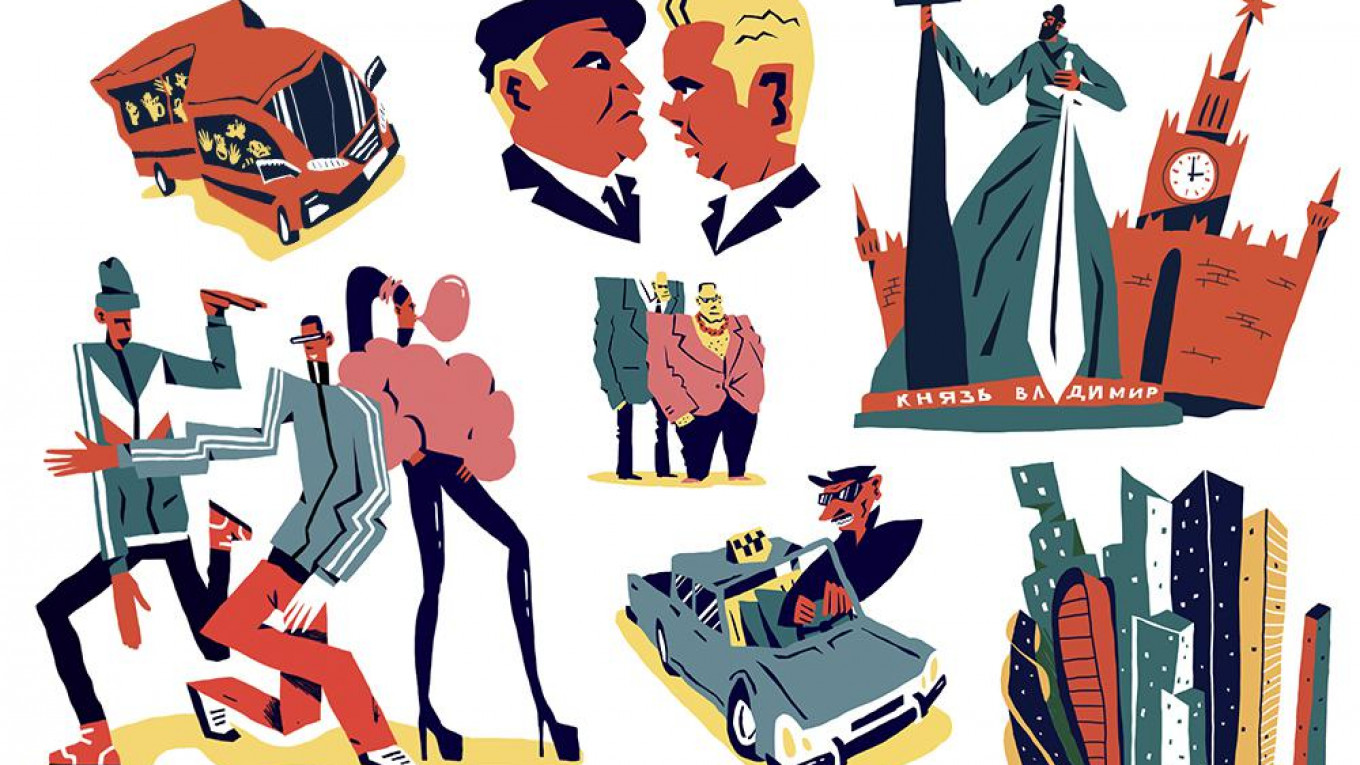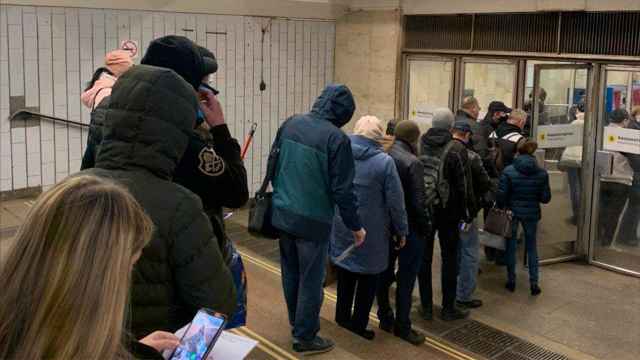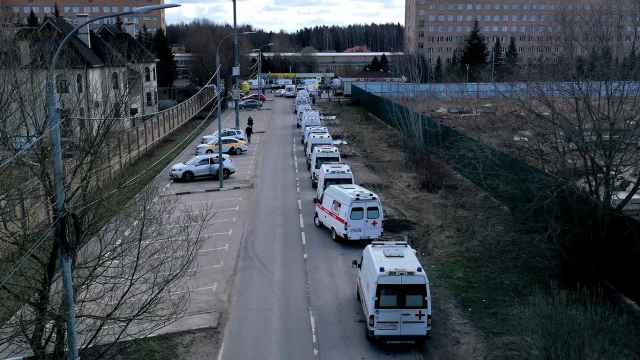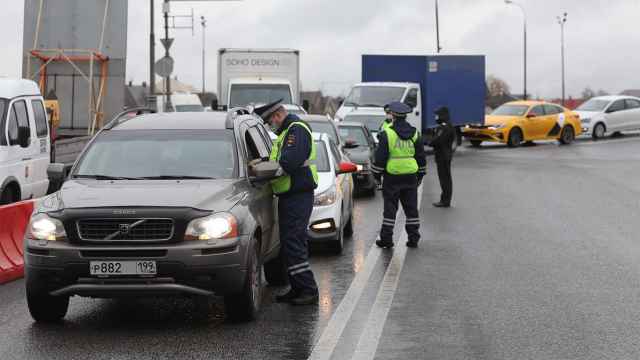In Russia, 25 years is a long time. With diligence and care, you can squeeze in, say, a couple revolutions, a civil war, a purge, industrialization and a little world war in less time than that. You don’t have to, but you can.
Now, we won’t get carried away and call the past quarter of a century in Moscow a revolutionary period. But this big, 15-million-strong baby has certainly come a long way in the time since The Moscow Times first hit the newsstands. (Remember newsstands?)
Just in case you haven’t been around for this whole time, let someone who has give you a brief recap of the most important — or just noticeable — things the Russian capital has done away with or added since 1992.
If you’ve been here that long, first off,
you’re old, and second, get nostalgic. What better opportunity
than an MT anniversary?
Kiosks
Before the capitalist store came to Moscow, there was only the kiosk. Newbie Muscovites will only remember them from the Night of the Long Bulldozer Knives, during which the current mayor did away with the remaining ones in the style of invading Mongols.
But at the onset of post-Soviet Moscow, the rows of small dirty stalls were where you’d get everything you needed. Granted, “everything,” as seen by the typical kiosk owner, was usually beer and chocolate bars, but the very fact that you could get a variety of stuff anytime — just pay and it’s yours — was a shocker to the Soviet mind.
They were ugly, cheap and convenient;
they embodied the spirit of Wild Capitalism —
and now they’re gone.

Bombilas
Of Moscow’s current car population, 50,000 are taxis. Once all the cars were taxis.
Before Uber and Yandex Taxi, “to bomb” wasn’t doing that thing in Syria, it meant working as a gypsy taxi driver, and anyone could be one.
You didn’t call a taxi, you hitchhiked, and the ride was a school of humility, haggling and, often, political studies — lessons offered by a talkative man in a trashy Lada who still remembered Brezhnev.
Well, at
least the “political studies” part is still around.

The Vladimir the Great Statue by the Kremlin
I mean, seriously?
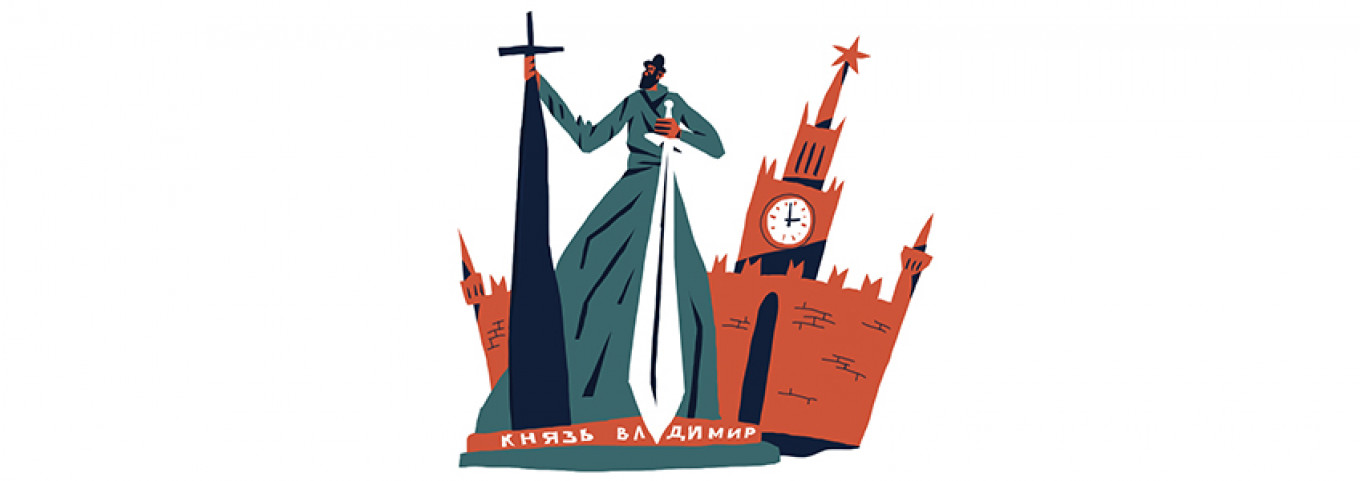
Subcultures
Youth today has gone downhill.
They still have ridiculous styles and slang words, but gone are the days when each kid had their own pack, be they metalheads, rappers, ravers or Tolkienists, each loathing all the others and sporting a variety of rituals, habits and visual identifiers more reliable than biometric IDs.
You truly haven’t lived until you headbanged to a boombox, or sawed off a pair of gramps’ skis to make a taped-up wooden sword fit for an Elf King. Much of 1990s Moscow is not missed, but bring back the Tolkienists! They were hilarious.
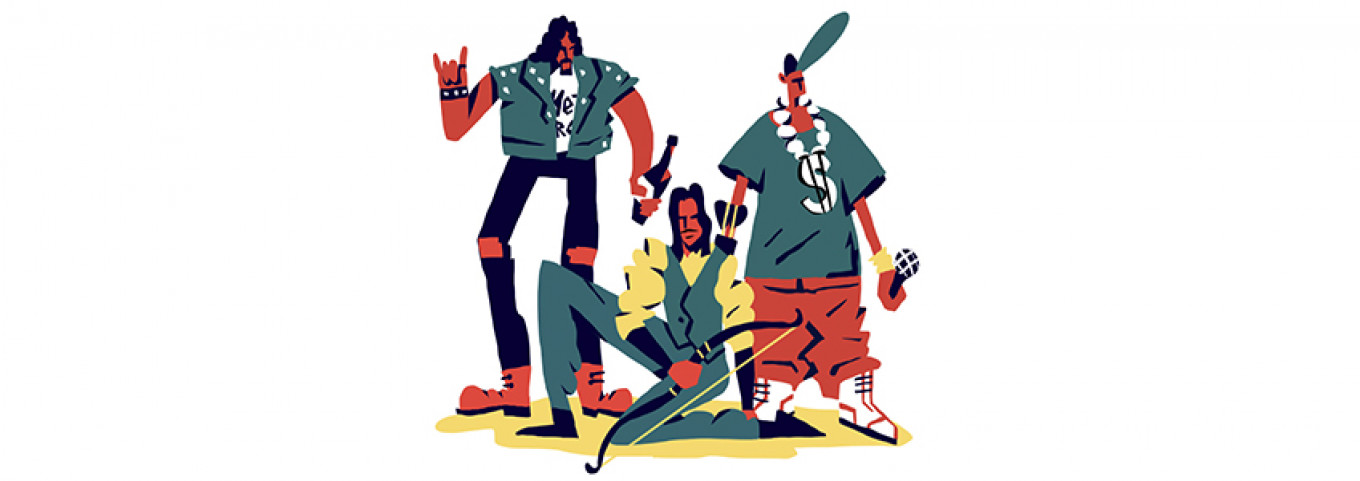
Marshrutkas
Just to revisit the era of Wild Capitalism once more: if you didn’t have the money to stick out a thumb at a passing Lada, you traveled in a shaking, surprisingly inconvenient metal box with seats designed for 15 Tyrion Lannisters filled out by such a variety of human types that a single ride was enough material for a novel, if not a series.
It often had as much
hate and strife as a Game of Thrones episode, too,
but there was no beating the marshrutkas in getting
from A to B fast and on the cheap.
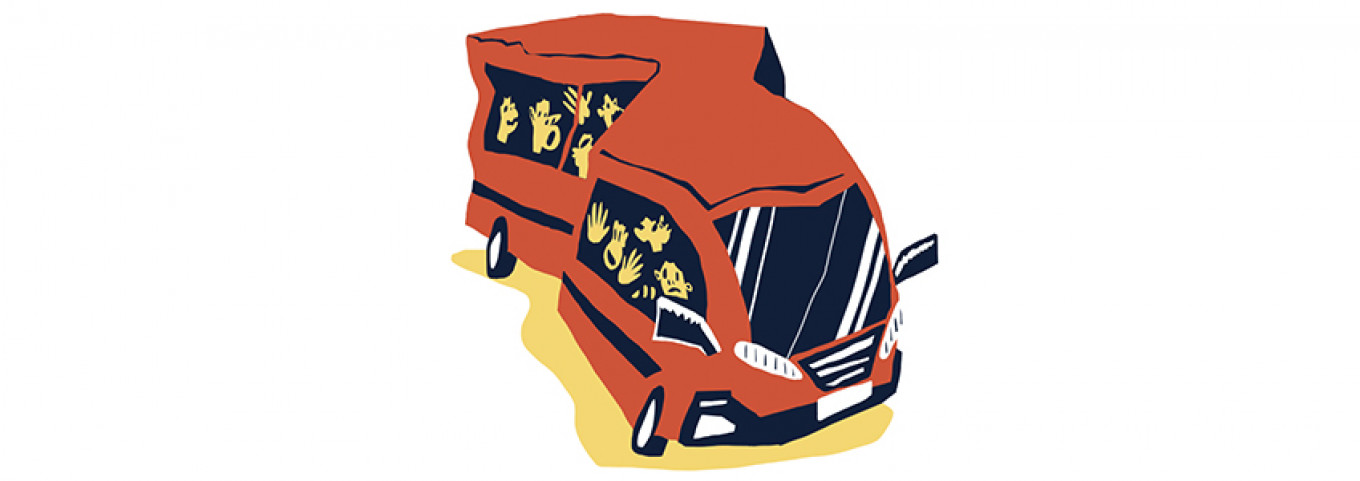
Moscow City
You can still recognize the Moscow of 25 years ago behind the new architecture, which has so far spread like acne, not the plague.
But still, developers have been like busy beavers on amphetamines — sometimes with the same aesthetic acumen.
When it’s all over and Moscow is a post-apocalyptic wasteland populated by coyotes, biker gangs and tumbleweed, the high-rises of the Moskva City district will be the one last tangible reminder of the petro-prosperity of the high Putin era.

Mayors
The corridors of power are one area where there has been surprisingly little change over the years.
Moscow has had only two mayors in a quarter of a century, and, despite all their differences, they are alike in being sure they know what the city needs without ever asking its residents, and coming up with the most expensive way of doing it.
It’s odd how Muscovites, for all the grumbling and insolence that only metropolitan denizens can emit, have not forcefully changed their rulers more often.
But perhaps they were distracted by “feet of
Bush” and later, skyscrapers and surprisingly good
coffee.
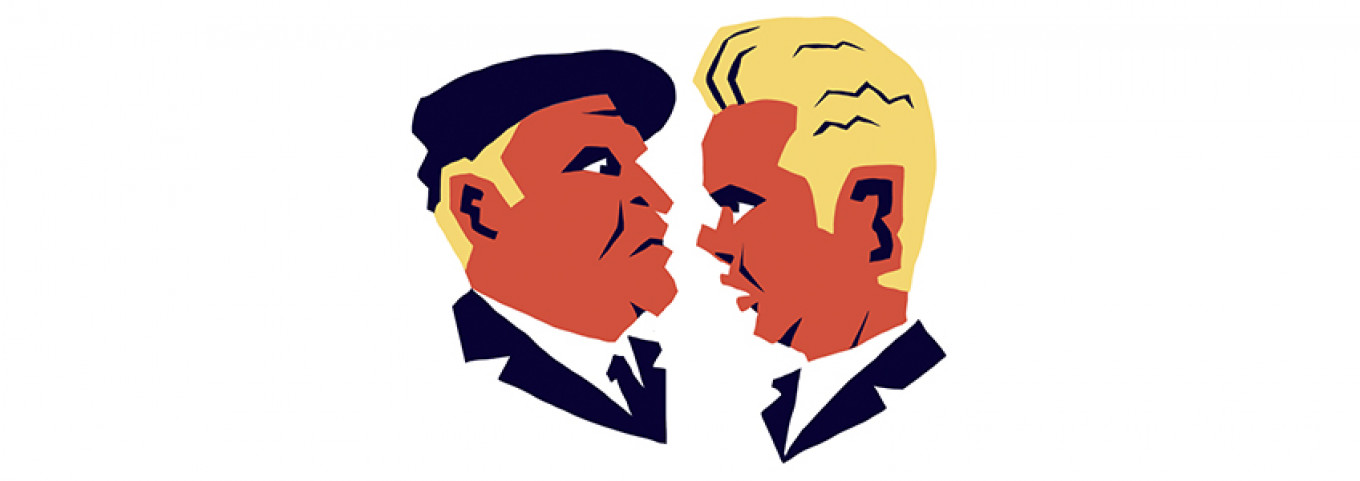
Fear and Crimson Jackets
Crimson jackets were the symbol of 1990s Russia: a gaudy status symbol for the busy, busy men who were always one step away from violence.
Because let’s admit it — while now you laugh when your auntie in Arizona asks whether they are going to dismember you for organs at a pedestrian underpass by Red Square, during the period of Wild Capitalism you walked after dark with your head swiveling 360 degrees owl-like to scan the environment.
Now business violence is limited to Igor Sechin jailing people he doesn’t like, and street violence at the Shchyolkovskaya and Yuzhnoye Butovo metro stations.
Maybe in 25 years we’ll
write them up as legends of old, too.

Youth
You should know — or remember — that grass was generally greener back in 1992, the girls (or boys) sexier, and bubblegum tastier.
And the city itself was younger and more stupid then, same as yours truly, and, chances are, you too, gentle reader.
But
the baby has really come a long way, and at least,
it’s still got The Moscow Times, so it can’t have
been all bad.

Food
You had to grow up on sausage-scrounging expeditions to really appreciate the immensity of gastronomic change in Moscow.
This is a city that for years thrived on “feet of Bush,” meaning George H.W. Bush and the cheap American chicken exports that flooded Russian stores on his watch.
A mere 15 years ago, most Muscovites had never seen a sushi roll, except maybe in a Jackie Chan movie, and coffee came from one-use packets and dissolved into brown water. If there has been a revolution in Moscow, it was a foodie one.

..........................................................................................................................................................................
The Unfair Observer is the pen name of a Russian journalist and native Muscovite writing for the Moscow Times.
This article is part of The Moscow Times' 25th anniversary special print edition. To view the entire issue click here.
A Message from The Moscow Times:
Dear readers,
We are facing unprecedented challenges. Russia's Prosecutor General's Office has designated The Moscow Times as an "undesirable" organization, criminalizing our work and putting our staff at risk of prosecution. This follows our earlier unjust labeling as a "foreign agent."
These actions are direct attempts to silence independent journalism in Russia. The authorities claim our work "discredits the decisions of the Russian leadership." We see things differently: we strive to provide accurate, unbiased reporting on Russia.
We, the journalists of The Moscow Times, refuse to be silenced. But to continue our work, we need your help.
Your support, no matter how small, makes a world of difference. If you can, please support us monthly starting from just $2. It's quick to set up, and every contribution makes a significant impact.
By supporting The Moscow Times, you're defending open, independent journalism in the face of repression. Thank you for standing with us.
Remind me later.


